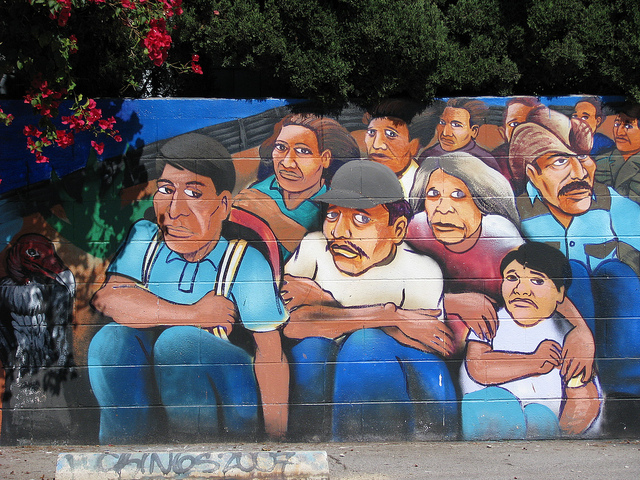
Even after signing a resolution to suspend the longest government shutdown in U.S. history, President Trump remains committed to delivering his long-promised southern border wall. In defense of the wall and the recently failed $5.7 billion Senate proposal, Trump again made comments on national security that contradict numerous studies and immigration scholars. However, the wall is not the only immigration policy proposed by the administration that could have dire social repercussions.
In a recent op-ed for the MinnPost, an interdisciplinary team of expert immigration scholars at the University of Minnesota, including Ryan Allen, Jack DeWaard, Erika Lee, and Chris Levesque, argues that the administrative changes to the ‘public charge’ rule is one such policy. The ‘public charge’ rule is a policy used to evaluate non-U.S. citizen applicants for U.S. residency by how likely they are to become dependent on the government for support. The Trump administration aims to make it easier for government officials to decide an immigrant is ineligible for residency if they are in need of or use government assistance programs. The research team highlights serious consequences of such a policy: in the wake of this announcement, many legal immigrants who are entitled and in need of health and social assistance programs fail to use them out of fear. This could produce detrimental effects on public health by spreading certain diseases across communities and reducing economic productivity.
The research team, which includes community stakeholders and activists, is committed to igniting critical discussions that address these challenges faced by individuals and families who immigrate to U.S. communities. In a sole-authored piece for the Pioneer Press, Jack DeWaard writes,
“…discussions and debates about U.S. immigrants, immigration and immigration policy must start with the very simple recognition that immigrants are people — often facing incredible hardships — seeking to do the best for themselves, their children and their families against a backdrop of widening inequality, both globally and within the U.S. With this as the starting point, say what you will about issues like the economic impacts of immigration…, men and women of character and integrity neither promote nor sit idly by as immigrants, including young children, are…denied their rights…in the process for doing what any person in their position would do — namely, ask for help.”

Comments 2
jabrina — September 13, 2022
Focus on the several things are gone be a amazing things but such a more a people can't focus on several things.Dinar Guru Updates
Perry E. Williams — August 14, 2023
President Trump's unwavering commitment to the southern border wall post-government shutdown raises questions, as his comments on national security contradict expert studies. Yet, the 'public charge' rule change is another concerning policy. Immigration scholars from the University of Minnesota highlight its potential to deter legal immigrants from essential assistance, risking public health and economic productivity. Well, here I would like to talk about non gamstop bookies at notgamstop.com as it provides useful information about sites where we can enjoy casino games and poker. I always admire the people who read reviews about such platforms before investing there.